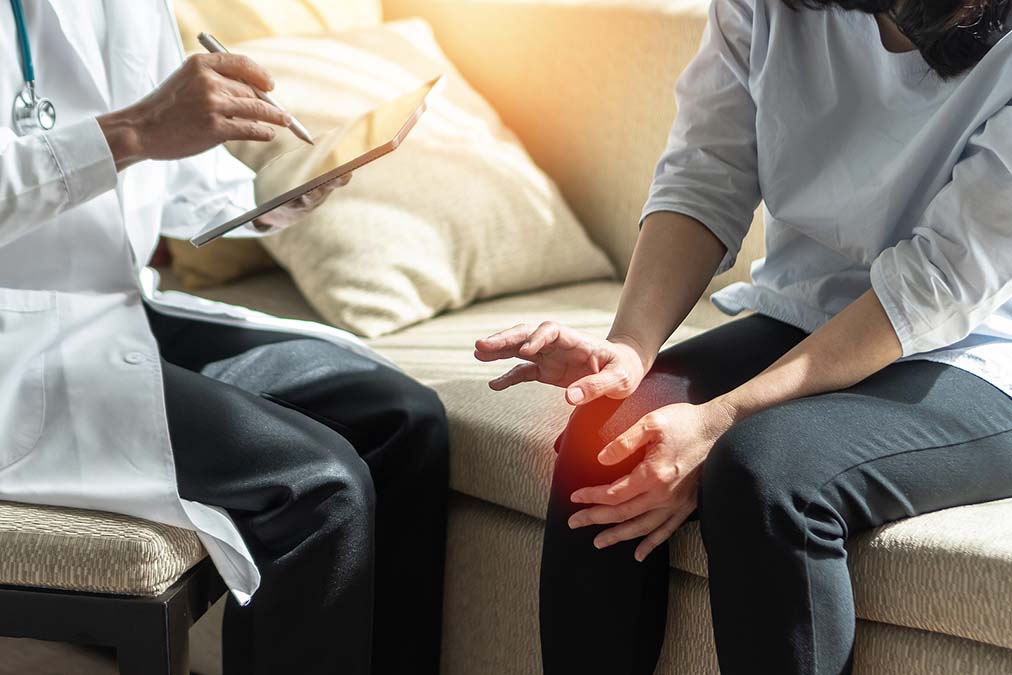 Osteoporosis is usually blamed on a lack of calcium, a lack of exercise, genetics, or other similar causes.
Osteoporosis is usually blamed on a lack of calcium, a lack of exercise, genetics, or other similar causes.
But psychological disorders—that’s something new. Could that be?
Yes, says a new study published in Osteoporosis International. One specific psychological disorder drastically increases your risk of both falling and osteoporosis.
People with anorexia nervosa have an intense fear of weight gain and accordingly take steps to reduce their weight, such as through excessive exercise and starvation. They have abnormally low body weight.
People with bulimia nervosa are equally afraid of weight gain, but they also tend to eat excessively to combat anxiety or depression. They then induce vomiting or use laxatives to get rid of the food. While their weight is often normal or even above normal, they are deficient in many essential nutrients.
People with binge eating disorder binge on food to relieve anxiety or depression and are accordingly at risk of diabetes, high cholesterol, and other diseases.
Many studies have linked anorexia nervosa to osteoporosis and low bone mineral density, although the literature on bulimia nervosa is still mixed.
Moreover, because nearly all studies on the relationship between eating disorders and osteoporosis have been performed on women, the authors of this new study wanted to include men in their analysis.
They used Swedish national medical registers to identify 8,867 non-obese patients who were diagnosed with eating disorders between 1998 and 2017. They then compared these patients to 88,670 people without eating disorders.
They used the same national health registers to identify fractures, along with serious falls that caused injuries without fractures.
Finally, they collected demographic and other health information to ensure that some other factor did not interfere with their findings.
The participants had an average age of 41.6, and 90.6% of them were women. They were all observed for an average period of 9.6 years.
Compared to those without eating disorders, those with these disorders were definitely more likely to suffer injuries:
1. They were more likely to suffer injurious falls without a fracture (17.3% versus 9%).
2. They were more likely to experience any fracture (17.9% versus 9.7%).
3. They were more likely to suffer major osteoporotic fractures (7.3% versus 3.7%).
4. They were more likely to endure hip fractures (1.6% versus 0.7%).
These statistics clearly show that people with eating disorders are more likely to suffer fractures and fall injuries.

 Overcoming IBD
Overcoming IBD Multiple Sclerosis
Multiple Sclerosis Banishing Bronchitis
Banishing Bronchitis Gum Disease Gone
Gum Disease Gone Overcoming Onychomycosis
Overcoming Onychomycosis Neuropathy No More
Neuropathy No More The Prostate Protocol
The Prostate Protocol Brain Booster
Brain Booster
 Ironbound
Ironbound
 Solution for Shingles
Solution for Shingles
 The Bone Density Solution
The Bone Density Solution
 The Ultimate Healing Protocol
The Ultimate Healing Protocol
 The Parkinson's Protocol
The Parkinson's Protocol
 The Chronic Kidney Disease Solution
The Chronic Kidney Disease Solution
 Overthrowing Anxiety
Overthrowing Anxiety The Fatty Liver Solution
The Fatty Liver Solution The Hypothyroidism Solution
The Hypothyroidism Solution
 The End of Gout
The End of Gout The Blood Pressure Program
The Blood Pressure Program
 The Oxigized Cholesterol Strategy
The Oxigized Cholesterol Strategy
 Stop Snoring And Sleep Apnea Program
Stop Snoring And Sleep Apnea Program
 The Arthritis Strategy
The Arthritis Strategy The Vertigo & Dizziness Program
The Vertigo & Dizziness Program The 3-Step Diabetes Strategy
The 3-Step Diabetes Strategy Hemorrhoids Healing Protocol
Hemorrhoids Healing Protocol The Erectile Dysfunction Master
The Erectile Dysfunction Master Weight Loss Breeze
Weight Loss Breeze The IBS Program
The IBS Program The Insomnia Program
The Insomnia Program The Migraine and Headache Program
The Migraine and Headache Program The Neck Pain Solution
The Neck Pain Solution The Menopause Solution
The Menopause Solution The Ejaculation Master
The Ejaculation Master The TMJ Solution
The TMJ Solution The Acid Reflux Solution
The Acid Reflux Solution The Fibromyalgia Solution
The Fibromyalgia Solution The Psoriasis Strategy
The Psoriasis Strategy